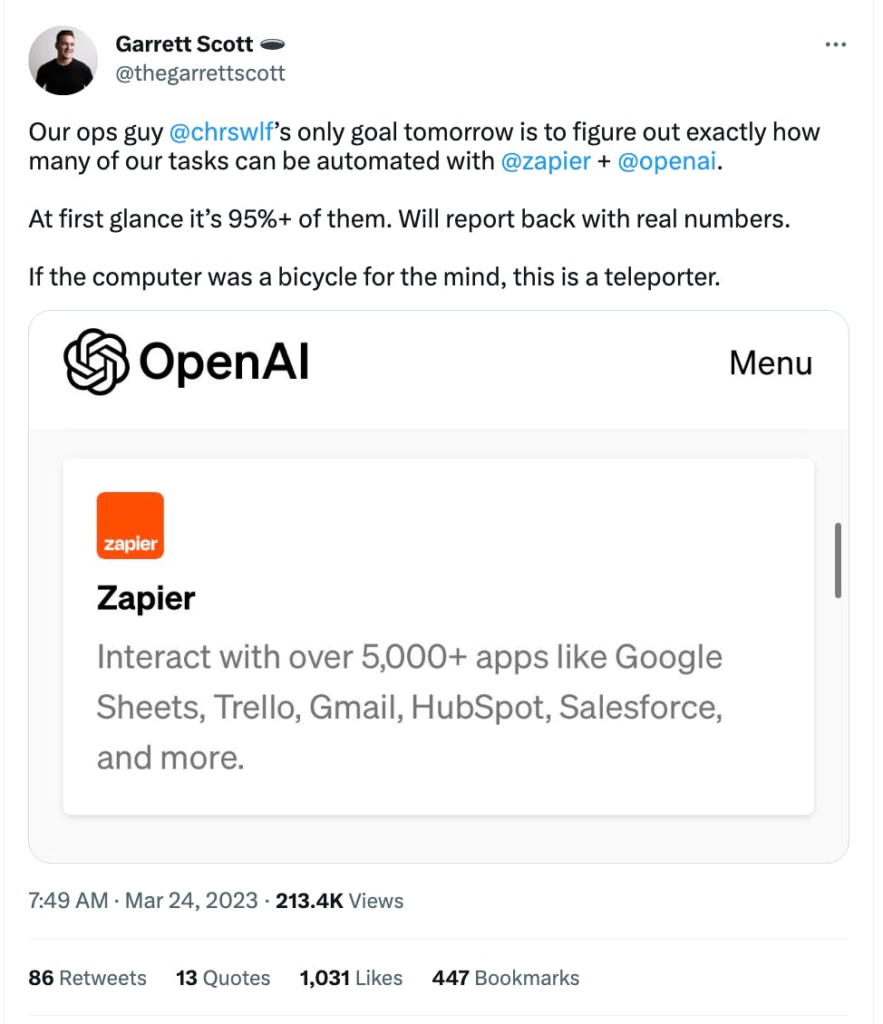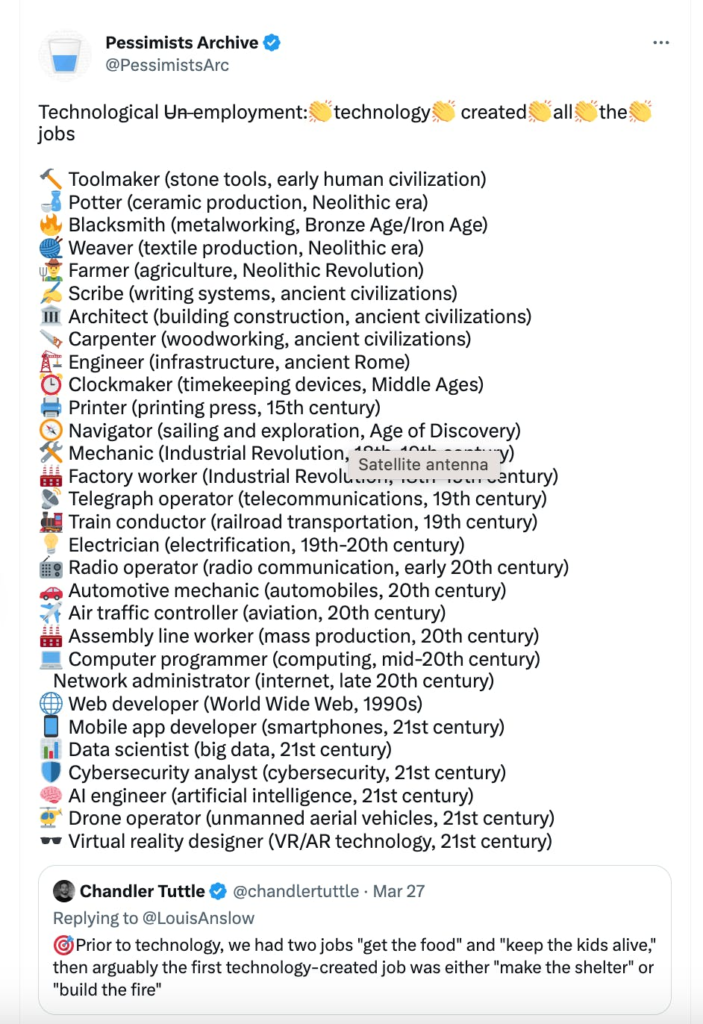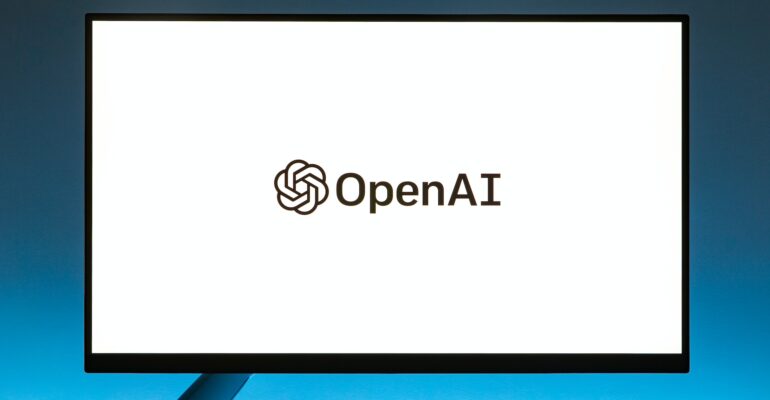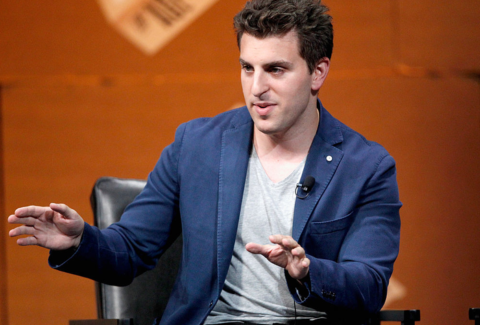OpenAI to take over the world?
Welcome to the ninth edition of ‘3-2-1 by Story Rules‘.
A newsletter recommending good examples of storytelling across:
• 3 tweets
• 2 articles, and
• 1 long-form content piece
Each would be accompanied by my short summary/take and sometimes with an insightful extract.
Today’s edition is all about OpenAI. (What else can we talk about?!)
Let’s dive in.
🐦 3 Tweets of the week

This is a BIG deal – I remember reading in Tim Urban’s blog about ANI vs AGI vs ASI. ANI isArtificial Narrow Intelligence, specialising in just one field (say chess). We’ve had ANI for several years now. AGI is Artificial General Intelligence, where AI reaches human level intelligence across a wide array of fields. And then there is ASI – Artificial Super-Intelligence, where the machines become unfathomably intelligent. Most doomsday scenarios are written about ASI.
In the post, Tim wrote, in 2015,
“The median year on a survey of hundreds of scientists about when they believed we’d be more likely than not to have reached AGI was 2040 – that’s only 25 years from now, which doesn’t sound that huge until you consider that many of the thinkers in this field think it’s likely that the progression from AGI to ASI happens very quickly”.
2040? Well looks like we are already there. Mind-blowing stuff.

ICYMI, here’s a video with Steve Jobs’ famous ‘bicycle for the mind’ analogy.

Which side of the debate do you fall on – will AI lead to higher unemployment or will the new jobs created make up for the old ones getting disrupted?
📄 2 Articles of the week
a. Attention is all you need by Packy McCormick
Packy McCormick (founder of the Substack newsletter, Not Boring) lays out the future world-beating potential of OpenAI’s new product announcements (and he isn’t even talking about GPT-4). Through their ‘APIs’ and ‘Plugins’ products, OpenAI might threaten every online business in the world.
ChatGPT is the Apex Aggregator – it will aggregate the aggregators. And because it owns the customer relationship, because it has attention, it won’t have to spend the $7.8 billion per year that Booking Holdings has to!
Prospective travelers won’t go to Google and search “hotels in Mexico City,” intent that Booking Holdings must pay to acquire; they’ll go to ChatGPT and say, “I like up and coming neighborhoods, nice accommodations, authentic food, lively atmospheres, and first class flights as long as they’re reasonable. My budget is $8k, and I’m traveling with my husband. Can you plan us a 7-day trip in Mexico City and make all the bookings?”
Today, in the very early innings, some of that will happen through Kayak (a Booking Holdings company), and users will still need to click to book the travel themselves and have a Kayak account and enter their credit card information. In the beginning, this will be a boon for plugin partners – Kayak will be able to get the booking without having to pay Google, and it might be able to reduce its brand marketing spend, too. Just plugin, sit back, and let the bookings roll in.
But if OpenAI chooses to go full throttle – and I think they will for the customer experience benefits, even if they don’t want to kill intermediaries – Kayak will just be one of many potential paths. Once users don’t have to specify plugins, once they all come out of the box and ChatGPT searches among all of them for the product that best suits its users’ needs, Kayak will be crunched, in the same way that Kayak has crunched intermediaries in its own value chain.
Hat/tip: Rahul Tawde for this fascinating article
b. Secret Cyborgs: The Present Disruption in Three Papers by Ethan Mollick
Prof. Ethan Mollick of Wharton gives us sage advice – ignore all the noise and hype around AI, and just start experimenting with it:
And the amazing thing is that we don’t need new technologies (though many are coming!) to achieve AI-driven performance improvements of 30% or more, the current tools are enough. The implications may reshape the way we work in ways that rival the impact of the Industrial Revolution.
With these potential productivity gains, every company should be spending a significant amount of their best employees time – right now! – figuring out how to use AI to improve performance.
And every worker should be spending time figuring out how to use these general-purpose tools to their advantage. They should be thinking about how to automate their job to remove the tedious and uncreative parts, and getting a sense for the disruption to come before the organizations they work for realize the full implications of AI. They may also want to consider what to do with the extra time they may be creating as a result of their experiments.
🎤 1 long-form listen of the week
a. ChatGPT did NOT title this podcast (Adam Grant with Allie Miller & Ethan Mollick)
I highly recommend listening to this conversation where AI-optimists Allie and Ethan try to convince a sceptical Prof. Grant. I especially liked the concept of NORA (No One Right Answer) questions:
Allie Miller: Also Adam, Google talked about something called Nora, N-O-R-A. No one right answer. And that is really where these systems are performing very well. Write an email to my landlord to ask for a lower rent, write a schedule for my family to better manage rehearsals in school. There’s no one right answer for these, and that is a massive productivity uplift that a lot of people can benefit from that is less reliant on accuracy and more reliant on helpfulness.
That’s all from this week’s edition.
Photo by Andrew Neel on Unsplash







